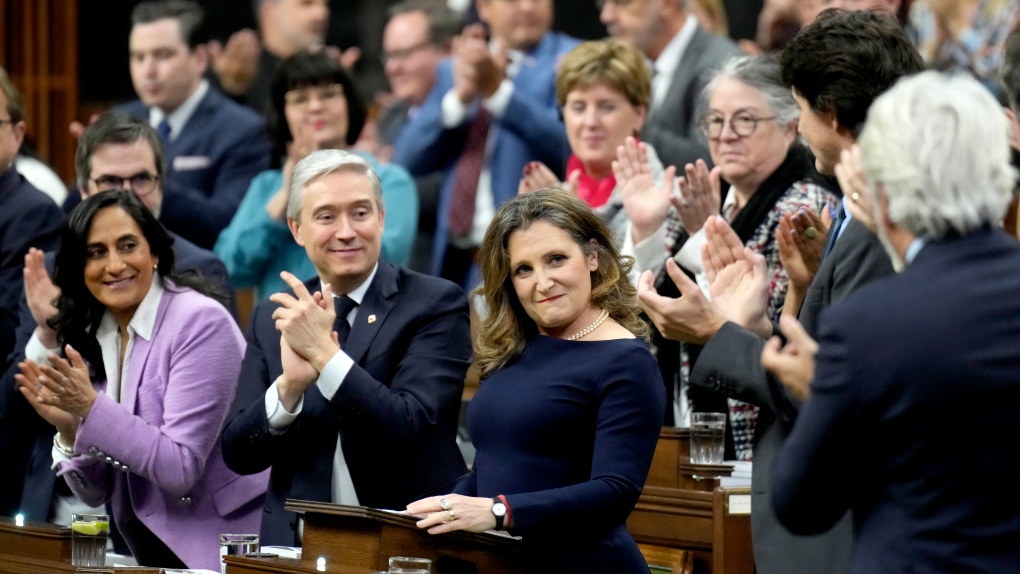
Budget 2024 prioritizes housing while taxing highest earners, deficit projected at $39.8B
CTV
In an effort to level the playing field for young people, in the 2024 federal budget, the government is targeting Canada's highest earners with new taxes in order to help offset billions in new spending to enhance the country's housing supply and social supports.
In an effort to level the playing field for young people, in the 2024 federal budget, the government is targeting Canada's highest earners with new taxes in order to help offset billions in new spending to enhance the country's housing supply and social supports.
Aiming to give Canadian millennials and Generation Z "a fair chance at a middle class life," Deputy Prime Minister and Finance Minister Chrystia Freeland's budget outlines how the Liberals plan to allocate $39.2 billion in net-new spending, while upholding the intended fiscal guardrails.
Framed as pursuing tax fairness, one of the main ways the Liberals are planning to bring in new revenue is by "asking" Canada's very wealthiest to pay more, with Freeland saying it would be irresponsible to pass on more debt to future generations by ignoring the fiscal anchors Freeland tied government to last fall.
However, with still no projected budget balance and bigger deficits forecasted in every year ahead than was previously projected, the budget — titled "Fairness for Every Generation" — notes that federal public debt charges are on track to balloon to $64.3 billion in 2028-29.
Aside from the weeks long pre-budget blitz of expected new measures, the 2024 budget includes some additional offerings for small businesses and entrepreneurs – including through a new carbon rebate – and finally puts dollar figures on the first phase of national pharmacare, as well as the long-promised disability benefit.
Overall, the 2024 federal budget includes $52.9 billion in new spending plans – some of which is loan-based and reliant on provincial buy-in – as well as an estimated $20 billion in new tax revenue, including tobacco and vaping taxes.
According to the budget, the federal deficit is projected to be $39.8 billion in 2024-25, $38.9 billion in 2025-26, and declining over the three years following, to $20 billion by 2028-29.
